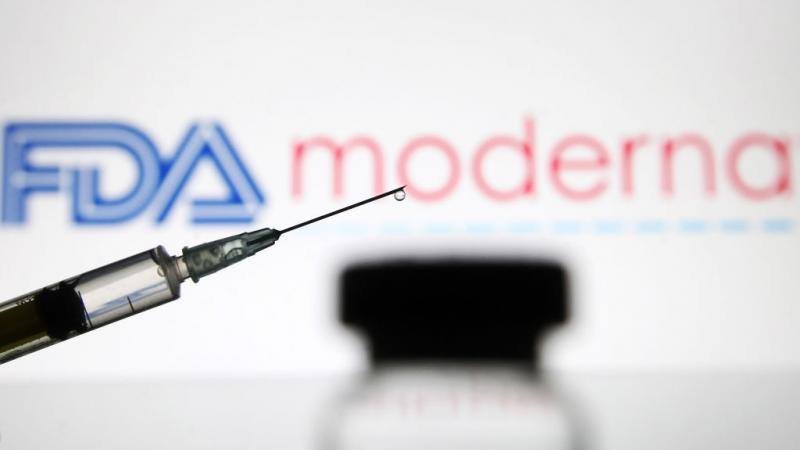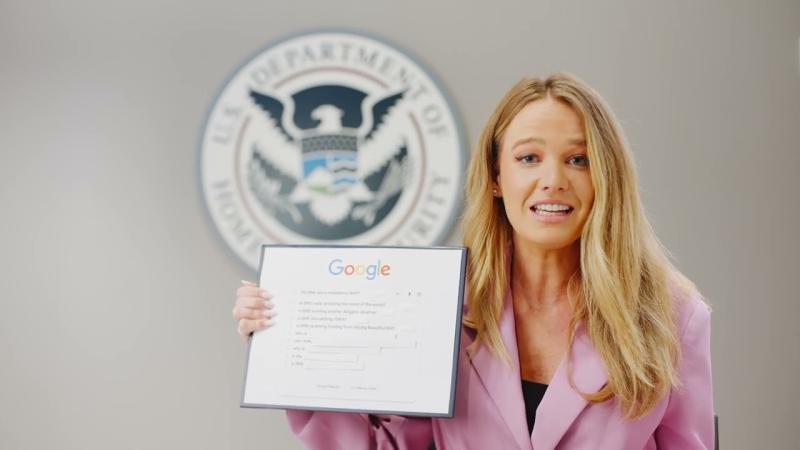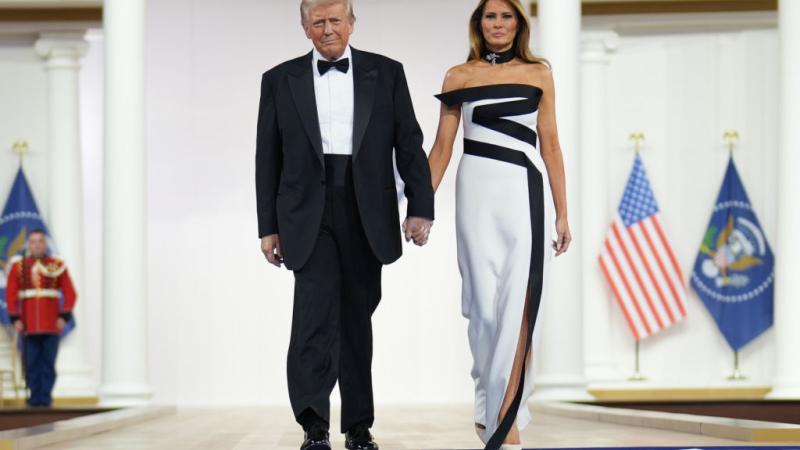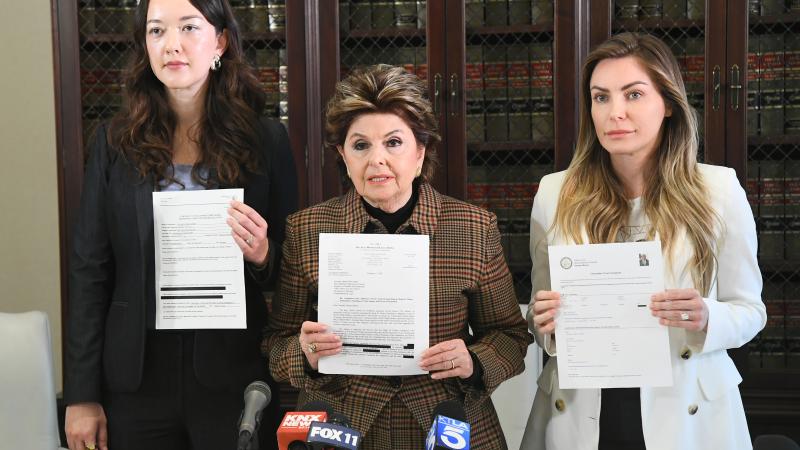'Yes, we did' fund Wuhan gain-of-function research, 'virtually every lab' does it: NIH official
"The broad definition is lab jargon" without regulatory relevance, and it's not dangerous, Lawrence Tabak tells COVID subcommittee. GOP reads from damning unreleased emails about evading FOIA, misleading NIH.
President Clinton's infamous parsing of the word "is" remains apt 26 years after his deposition in Paula Jones' sexual harassment lawsuit.
National Institutes of Health Principal Deputy Director Lawrence Tabak found himself in a Clintonian callback at a House Select Subcommittee on the Coronavirus Pandemic hearing Thursday on NIH oversight of funding that may have helped unleash the COVID-19 pandemic.
"This is sort of like what the definition of 'is' is," Rep. Mariannette Miller-Meeks, R-Iowa, deadpanned as Tabak distinguished between the broad definition of gain-of-function research on a "news and events" page NIH erased between Oct. 19 and 21, 2021, and the narrow definition its regulators use for grant approval and compliance on a replacement page.
The former "modifies a biological agent so that it confers new or enhanced activity to that agent," while the latter has a much higher bar: "research that may be reasonably anticipated to create, transfer or use potential pandemic pathogens resulting from the enhancement of a pathogen’s transmissibility and/or virulence in humans."
The Department of Health and Human Services on Wednesday immediately suspended and proposed debarment of the EcoHealth Alliance, which passed through U.S. funding to the Wuhan Institute of Virology, for violating terms of a reinstated NIH grant by failing to report a WIV experiment had exceeded a threshold for "increased viral activity" – arguably GoF research.
🚨BREAKING🚨
Today, based on evidence uncovered in @COVIDSelect's recent report, the U.S. Department of Health and Human Services commenced formal debarment proceedings against EcoHealth Alliance.
EcoHealth will now face an immediate, government-wide suspension of taxpayer… pic.twitter.com/gLxg6R3Enw— Select Subcommittee on the Coronavirus Pandemic (@COVIDSelect) May 15, 2024
That came more than two years after Tabak told House Oversight Committee Chairman James Comer, R-Ky. – right as NIH was scrubbing the broad definition – that EcoHealth's long-delayed final progress report disclosed a modified bat coronavirus unexpectedly made mice "sicker" than the original virus.
Tabak professed ignorance when Meeks asked whether EcoHealth may have taken advantage of NIH's "inconsistencies" between definitions to keep the viral research spigot flowing.
"Oversight of grant management is crucial, regardless of anyone’s 'operative definition' of gain of function," Subcommittee Chairman Brad Wenstrup, R-Ohio, said Thursday in his opening statement, taking partial credit for HHS's action through a subcommittee staff report two weeks earlier that accused NIH of violating WIV's earlier debarment by continuing to fund EcoHealth.
Democrats on the panel turned on EcoHealth President Peter Daszak at a hearing hours after that report, saying he previously misled Congress about the nature of its relationship with WIV.
The GOP majority continued its prerelease practice Thursday with former NIH Director Francis Collins' transcribed interview, claiming he contradicted former National Institute of Allergy and Infectious Diseases Director Anthony Fauci's lawyer related to the Feb. 1, 2020, conference call that arguably set the mainstream narrative against the lab-leak theory.
Tabak conceded Thursday what Republicans and GoF-critical scientists have been waiting to hear from his lips for years: NIH funded such research under its own scrubbed definition.
🚨The National Institutes of Health admits to funding gain-of-function research in Wuhan, China🚨@RepDLesko: "Did NIH fund gain-of-function research at the Wuhan Institute of Virology through EcoHealth?"
Dr. Tabak: “If you're speaking about the generic term, yes, we did” pic.twitter.com/CnbFx2TUzQ— Select Subcommittee on the Coronavirus Pandemic (@COVIDSelect) May 16, 2024
"If you're speaking about the generic term" and not the regulatory definition, "yes, we did" fund GoF research at WIV, he told Rep. Debbie Lesko, R-Arizona, while repeatedly emphasizing "virtually every lab" in the U.S. does such research with no meaningful safety concerns.
"The broad definition is lab jargon," Tabak answered when Meeks asked why NIH doesn't use a "universally employed" definition. "It's just the way scientists speak," whereas the narrow definition "is the important one" for oversight purposes, he said.
Tabak would only say the "communications department" scrubbed the broad definition to eliminate "confusion" about which one had regulatory relevance. "The content was vetted" by "subject matter experts," he said.
Rep. Nicole Malliotakis, R-N.Y., told him to follow up with specific names.
Republicans repeatedly read from unreleased emails they've obtained, as a subcommittee spokesperson confirmed. They include the most damning evidence to date that Fauci's scientific adviser, David Morens, chronically and knowingly violated the Freedom of Information Act.
"I learned from our FOIA lady here how to make emails disappear after I am FOIA'd but before the search starts, so I think we are all safe," Morens told Daszak, according to Comer's reading. "Plus I deleted most of those earlier emails after sending them to Gmail."
Alleged federal records violator & top advisor to Dr. Anthony Fauci — Dr. David Morens — is STILL employed by @NIH.
Why?@COVIDSelect has evidence suggesting Dr. Morens used his personal email(s) to hide conversations about the origins of COVID-19 & undermine @NIH operations👇 pic.twitter.com/Twvc1HdHk4— Select Subcommittee on the Coronavirus Pandemic (@COVIDSelect) May 16, 2024
Another from Morens: "We all are smart enough to know to never have smoking guns, and if we did we wouldn't put them in emails, and if we found them we would delete them." Comer said Morens showed Daszak discussions on upcoming FOIA releases and helped write responses.
All of that would violate NIH policy, and "I certainly hope" its FOIA office isn't helping employees evade the law, Tabak responded.
Republicans expressed outrage that Morens remains employed by NIH and at Tabak's refusal to say whether Morens even experienced "repercussions," calling it a "personnel matter" he can't discuss.
"It seems very convenient that you can't tell us anything," Lesko huffed.
Daszak also appeared to contradict his claim, which EcoHealth once demonstrated for Just the News, that the NIH report-filing system had locked out the nonprofit, which is why its year-five report was so late.
"Here's the truth behind this mystery," he wrote to Morens' personal email, according to Wenstrup. After NIH funded the next grant "we assumed we didn't need to" file the report, and when the Trump administration terminated it, EcoHealth "assumed we definitely wouldn't need to," Daszak said. The NIH system worked and Daszak's assumptions are wrong, Tabak said.
What is EcoHealth Alliance hiding from @NIH & the American people?🤔
The Wuhan Institute of Virology's lab notebooks, to start.
EcoHealth violated the terms of its @NIH grant when it failed to produce “laboratory notebooks” with data about the WIV's gain-of-function research. pic.twitter.com/Lg9DkVbGVa— Select Subcommittee on the Coronavirus Pandemic (@COVIDSelect) May 16, 2024
Concern about NIH's contrasting definitions was the closest Democrats got to criticizing Tabak, praising him and "NIH's diligent work to tackle the pandemic," as Energy and Commerce Oversight Subcommittee's top Democrat, Florida Rep. Kathy Castor, put it.
Tabak admitted to Rep. Deborah Ross, D-N.C., it would be reasonable for an ordinary person to visit NIH's "news and events webpage," which contained the broad GoF definition, to learn how the feds define it.
But he said Ecohealth relied on the regulatory definition to evaluate whether WIV's research complied, and NIAID also used it, which convinced Ross. She accused Republicans of a "disservice" by judging regulators "outside of the regulatory context."
Democrats tag-teamed with Tabak to explain why WIV could not have played a role in COVID's emergence. Ranking Member Raul Ruiz, D-Calif., read from Tabak's 2021 letter that said NIH-funded bat coronavirus experiments were "decades removed" from SARS-CoV-2 "evolutionarily."
But Tabak admitted to Malliotakis he was "certainly not" aware of WIV's full research portfolio and did not "personally" know the Chinese military did work there. NIH is relying on USAspending.gov to confirm WIV has received no further funding since its debarment, and EcoHealth to confirm WIV stuck to "nonhuman pathogens" that pose no threat, he said.
Democrats stuck to several hearings' talking points that the GOP had wasted a year and a half by shedding no further light on COVID's origin.
Ruiz called it an "effort to weaponize concerns about a lab-related origin to fuel sentiment against our nation's scientists and public health officials for partisan gain" and asked Republicans to stop "sowing extreme conspiratorial accusations" that "public health leaders" triggered a pandemic and then covered up its origin.
The Facts Inside Our Reporter's Notebook
Links
- his deposition in Paula Jones' sexual harassment lawsuit
- Principal Deputy Director Lawrence Tabak
- "news and events" page NIH erased
- replacement page
- immediately suspended and proposed debarment of the EcoHealth Alliance
- modified bat coronavirus unexpectedly made mice "sicker"
- opening statement
- Democrats on the panel turned on EcoHealth President Peter Daszak
- former NIH Director Francis Collins' transcribed interview
- David Morens chronically and knowingly violated
















